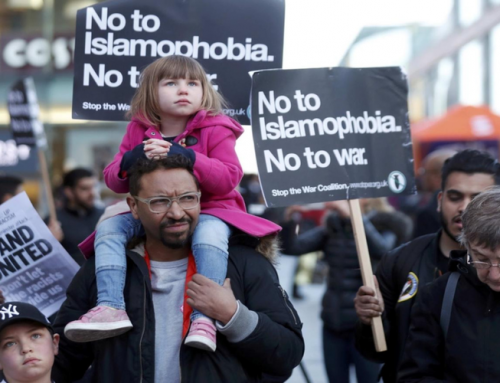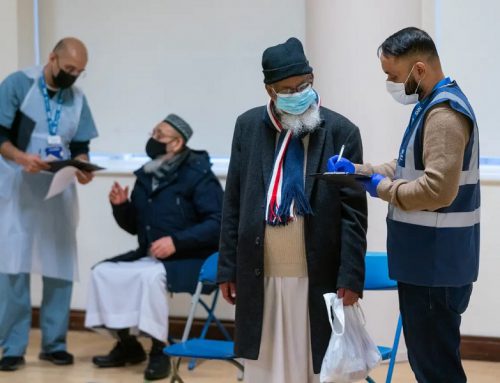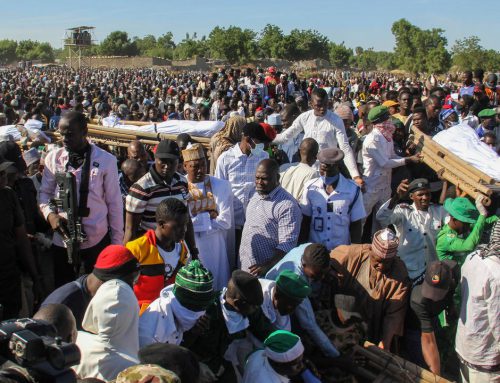All religions go through situations of distress and ruthlessness, strength, deflation, centrality and militancy, as they are systems of universal values for vast numbers of people who differ in their environments, cultures, and intellectual and social backgrounds. Therefore, religious values remain the same in their sacred texts, but differ in their applications and directions from one environment to another, from one society to another, and from one time to another, due to the factors influencing human beings seeking these texts.
As the case in Judaism, Christianity and all other religions, Islam was plagued by a group of followers who understood its texts in accordance with a strict and rigid manner and preached the verses of Quran and the narrations of the messenger of Islam in accordance with their desires, which were shaped by the ambitions and grievances of politics.
Among the Muslims and in the early days of Islam the movement of Kharijites emerged, which broke the equation of security and stability in the Muslim society for their misunderstanding of the texts of the Quran and its reluctance to adapt their understanding to the general goals of religion. The Prophet of Islam predicted the emergence of this group and he warned against them. This group divided into more than 30 different smaller groups, fighting each other. Although it launched five fierce wars against the Caliphate during the time of Imam Ali, and launched more than 23 revolution against the Umayyad state, managing in some cases to shake the pillars of the existing state as they did in their first confrontation with the Umayyad state during the time of Muawiya, who almost lost to them in the year 41H/ 661 C.E; however, the Kharijites with their multiple teams were swallowed up by history and died because their message did not correspond with the general line of divine messages, not even with the common line of human values that gives man, his soul and security a priority over religious duties and prohibitions .
This historic inevitability, which has led to the demise of the Kharijites, has pushed and continues to push all extremist movements to disappear, because they deviate from the common values that religions and contemporary laws have come to protect, preserve and defend. An extensive study by the RAND Foundation, titled “How Terrorist Groups End”, examined the fate of 648 extremist groups, which were active between 1968 and 2006, indicated that 62% of these extremist movements have disappeared from the scene, and the rest are still hardly functioning. This proves that only movements and trends that protect human values will survive, regardless of religious and humane affiliation. This study indicates that 43% of these 648 movements ended up joining the political process in the country in which they were operating, due to their leaders’ and founders’ belief of the uselessness of violence and the impossibility of achieving any goal, while 40% of these movements disappeared because of governments adopting policies to combat violence. This study noted that only 7% of these movements ended as a result of military and security operations launched by governments against them. Only 10% of these movements achieved their political and social goals for which they were founded.
An extensive study by the RAND Foundation, titled “How Terrorist Groups End”, examined the fate of 648 extremist groups, which were active between 1968 and 2006, indicated that 62% of these extremist movements have disappeared from the scene, and the rest are still hardly functioning. This proves that only movements and trends that protect human values will survive, regardless of religious and humane affiliation. This study indicates that 43% of these 648 movements ended up joining the political process in the country in which they were operating, due to their leaders’ and founders’ belief of the uselessness of violence and the impossibility of achieving any goal, while 40% of these movements disappeared because of governments adopting policies to combat violence. This study noted that only 7% of these movements ended as a result of military and security operations launched by governments against them. Only 10% of these movements achieved their political and social goals for which they were founded.
Although this study shows that religiously motivated terrorist movements have enjoyed a better chance of survival than other terrorist movements with political and criminal motives do, only 32% of religious terrorist movements have disappeared as a result of the aforementioned reasons. While 62% of the terrorist movements ended because of the same reasons. However, the study shows that no religious terrorist movement among all the studied movements has achieved its goals.
other terrorist movements with political and criminal motives do, only 32% of religious terrorist movements have disappeared as a result of the aforementioned reasons. While 62% of the terrorist movements ended because of the same reasons. However, the study shows that no religious terrorist movement among all the studied movements has achieved its goals.
The study also indicates that although these movements stand resilient resisting demise more than other movements did, their fate of disappearance and extinction due to their lack of moral values was proven. There is no doubt that the campaigns of the Umayyad leader Al-Muhallab ibn Abi Sufra (d.702 C.E) contributed to the eradication of Kharijites, weakening their strength and underestimating the strength of their armies. The Kharijites continued to exist decades after Al-Muhallab and the Umayyads. They were buried along with their crimes by history because of their failure to maintain the justification of their legal and moral existence. Extremist contemporary movements followed the path followed by the Kharijites in history too. Where is the Hijra and Takfir movement, which was founded in Egypt in the late sixties, preoccupying people with their crimes and extremist tendencies in many Arab countries?! Where is the Islamic Group, which was founded in Egypt in the seventies, and committed many crimes?! Its founders were forgotten, and those remained of them hastened to adopt a policy of intellectual and juridical revision after their religious and political awareness increased. Where is the long list of armed groups that have dominated the scene of the Algeria in the 1990s, such as the Armed Islamic Group, the Islamic Salvation Army, the Salafist Group for Preaching and Combat, the Protectors of Dawa, Al-Baqoun Alaa Al-Ahid, the Migration and Atonement, the Movement of the Islamic State, the Islamic Front for Armed Jihad, and other movements that have disappeared and faded away after soaking the blood of innocents without achieving any of their goals, but rather, increasing the non-satisfaction of people from any political project that takes an Islamic mask.
In addition, where is ISIS that drew the attention of the entire world, and increased the wounds of Muslims over the past three years? Where is Al-Qaeda that has cracked our heads over the past twenty years? Where is Ansaar Al-Sharia? Do not they rush to their end before our own eyes?
With this historical inevitability that has determined the fate of all extremist movements in history, which is still leading extremist groups to their inevitable destiny these days too, we should ask ourselves: Has the time not come for those radicals that their hearts should become humbly submissive to the mercy of Islam before history wipes them off, as it previously did with their predecessors?!
*Dr.Tarik Ladjal is Professor of History at Effat University in Jeddah, Saudi Arabia





